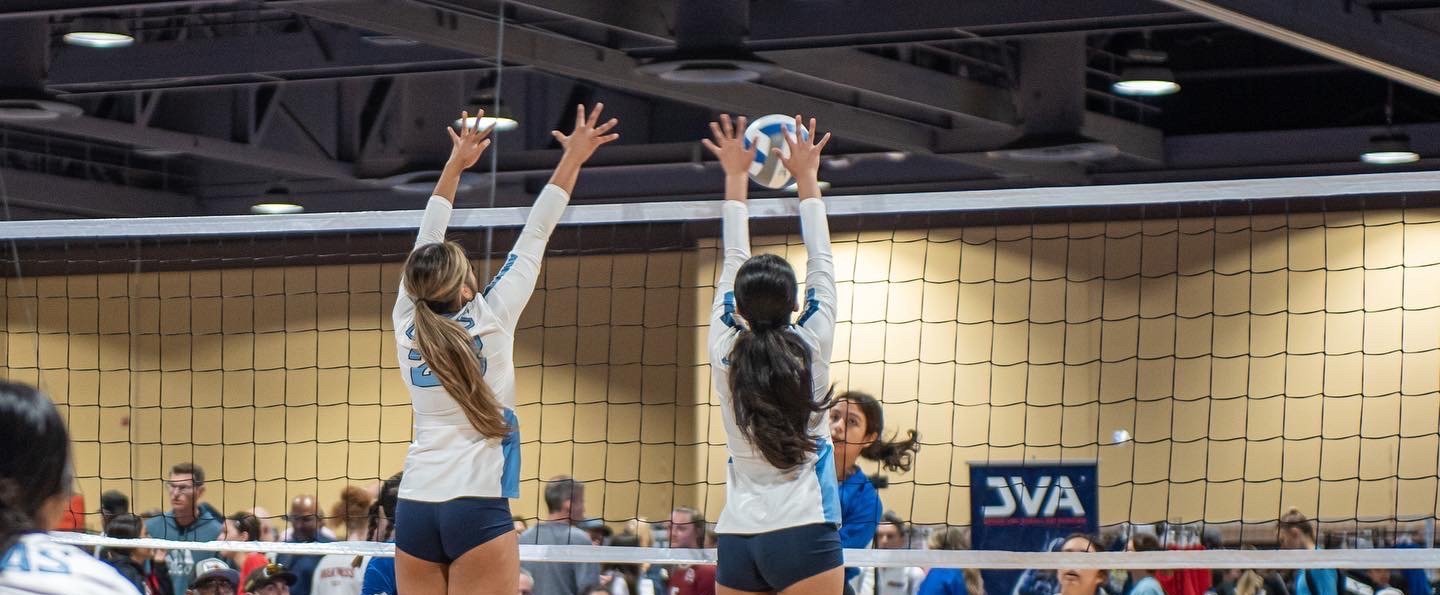
WHAT IS CLUB VOLLEYBALL?
Club volleyball is an organized and competitive form of volleyball that exists outside of school-based teams and leagues. It provides athletes with the opportunity to play volleyball at a higher level, often with the goal of improving skills, gaining exposure, and competing in regional, national, or even international tournaments. Here’s a deeper look into what club volleyball entails:
STRUCTURE AND ORGANIZATION
Club Teams
Formation: Club volleyball teams are typically formed based on age and skill level. Teams are often divided into different age groups, ranging from under-12 to under-18, to ensure that players compete against peers of similar age and development.
Clubs: Volleyball clubs can range from small, local organizations to large, well-known entities with multiple teams and extensive resources. These clubs are often led by experienced coaches and volleyball professionals.
Governing Bodies
USA Volleyball (USAV): In the United States, the main governing body for club volleyball is USA Volleyball, which sets the standards for rules, competition formats, and player safety. Many clubs are affiliated with USAV and participate in its sanctioned events.
AAU Volleyball: The Amateur Athletic Union (AAU) is another organization that hosts club volleyball events, offering additional opportunities for competition and development.
TRAINING AND DEVELOPMENT
Coaching
Experienced Coaches: Club volleyball teams are coached by individuals with extensive backgrounds in the sport, including former college and professional players, and experienced coaches. These coaches bring a high level of expertise and are often certified by governing bodies such as USA Volleyball.
Skill Development: Emphasis is placed on developing both individual skills (such as serving, passing, setting, attacking, blocking, and defense) and team strategies (such as offensive and defensive systems, teamwork, and communication).
Practice
Regular Training Sessions: Club teams typically practice multiple times a week. These sessions are designed to be rigorous and focused, providing players with intensive training that is often more advanced than what they might receive in school-based programs.
Conditioning and Fitness: Physical conditioning is also a key component of club volleyball training. Athletes engage in exercises to improve their strength, agility, and overall fitness, which are essential for peak performance on the court.
COMPETITION AND TOURNAMENTS
Local and Regional Tournaments
Leagues and Events: Club volleyball teams participate in various local and regional tournaments throughout the season. These events provide regular competitive play against other club teams and are crucial for player development and team cohesion.
Qualifiers: Many clubs aim to compete in regional qualifiers that can lead to larger national tournaments, testing their skills against top teams from broader areas.
National and International Tournaments
National Championships: Prestigious events such as the USA Volleyball Junior National Championships and the AAU National Championships are the pinnacle of the club volleyball season. Teams from across the country compete for national titles, and these tournaments are often scouted by college recruiters.
International Competitions: Some elite club teams may also participate in international tournaments, providing exposure to different playing styles and levels of competition from around the world.
BENEFITS OF CLUB
Skill Enhancement
Advanced Training: The intensive and specialized training provided by club volleyball helps players develop advanced skills and a deeper understanding of the game, often leading to significant improvement in their performance.
College Recruitment
Exposure to Scouts: Club volleyball is a key pathway for players aiming to compete at the collegiate level. College coaches frequently scout club tournaments, giving players the opportunity to showcase their talents and potentially earn scholarships.
Personal Growth
Life Skills: Beyond volleyball skills, club volleyball teaches important life skills such as discipline, teamwork, leadership, and time management. The experience of traveling and competing also fosters independence and resilience.
Community and Friendship
Camaraderie: Being part of a club team creates a sense of community and belonging. Players build strong bonds with their teammates and coaches, forming lasting friendships and support networks.
Club volleyball is a highly structured and competitive arena that offers young athletes the chance to excel in the sport through advanced training, rigorous competition, and exposure to higher levels of play. It is a valuable experience for those looking to improve their skills, pursue collegiate opportunities, and develop important life skills in a supportive and challenging environment.
CLUB VOLLEYBALL GOVERNING BOARDS
-

WEST COAST VOLLEYBALL ASSOCIATION (WCVBA)
-

NORTHERN CALIFORNIA VOLLEYBALL ASSOCIATION (NCVA)
-

AMATEUR ATHLETIC UNION (AAU)
-

JUNIOR VOLLEYBALL ASSOCIATION (JVA)

